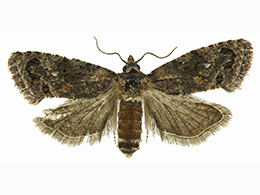
The Kenyan flower industry is facing an escalating threat from the False Codling Moth (FCM), a pest that jeopardizes market access for Kenyan roses in Europe. The European market, a critical destination for Kenyan roses, is tightening its plant health standards. Last year, the European Commission announced it was considering increasing the minimum percentage of plant health inspections for imports from Kenya and Ethiopia.
The proposed increase, from 10% to 25%, for Kenya and from 5% to 25% for Ethiopia, reflects growing concerns about FCM infestations. These stricter regulations are expected to take effect this year, adding pressure on Kenyan exporters to find effective pest management strategies. Andermatt Kenya, led by CEO Hamish Ker, is stepping up with biological solutions to effectively control this pest, ensuring the industry remains competitive and sustainable.
Swiss Innovation in Kenya
Andermatt Kenya, a subsidiary of the renowned Swiss Andermatt Group, was established five years ago to bring natural plant health solutions to Kenya and the broader Eastern Africa region. The parent company, founded over 30 years ago by Dr. Martin and Dr. Isabel Andermatt, has a rich history of pioneering biological pest control products. Their first breakthrough product, MADEX, utilized baculoviruses to target the codling moth, revolutionizing pest management in organic apple production. This success laid the foundation for Andermatt’s reputation as a global leader in biological solutions.
Innovative Solutions for a Persistent Problem
Andermatt Kenya offers several biological products specifically designed to manage FCM. Their flagship product, CRYPTEX®, has proven to be highly effective in controlling FCM in various crops across Africa, including grapes, citrus, and avocados. In Kenya, CRYPTEX® is registered for use in roses, avocados, and capsicum.
In addition to CRYPTEX®, Andermatt Kenya provides Thuricide®H.P, a bioinsecticide containing Bacillus thuringiensis (Bt) spores, and Eco-Bb, a broad-spectrum bioinsecticide with Beauveria bassiana spores. These products not only target FCM but also address a range of other pests, offering a comprehensive approach to pest management.
Confidence in Biological Solutions
Hamish Ker emphasizes the rigorous testing and proven efficacy of Andermatt’s products. “Our products undergo thorough efficacy testing during the registration process and have demonstrated their effectiveness on commercial farms in Kenya. This provides farmers with reliable and environmentally friendly solutions,” he states.
A Call for Collective Action
Addressing the FCM threat requires a coordinated effort across the agricultural sector. The pest affects multiple export crops, including roses, avocados, and capsicum. Hamish Ker advocates for a national focus on pest management, emphasizing the need for consistent preventive measures to reduce FCM populations and prevent outbreaks. “Interceptions impact Kenya’s export status, so we must join hands as an industry to control this pest consistently,” he urges.
Broad Implications for Kenyan Exports
The implications of FCM extend beyond the rose industry, posing a broader risk to Kenya’s export economy. Effective pest management strategies are crucial for all susceptible crops to protect the country’s reputation and market access.
Towards a Sustainable Future
Andermatt Kenya believes in leveraging biological solutions for a sustainable future in flower farming. By focusing on plant nutrition and health, these solutions help cultivate resilient, productive crops in a cost-effective manner. Hamish Ker encapsulates the company’s philosophy: “Nature gave rise to pest and disease challenges, and it also provides the solutions to balance and correct them sustainably. We aim to grow crops that are more resilient and productive, aligning with our ethos of ‘Healthy Food, Healthy Environment, for all.’”
By adopting these innovative biological solutions, the Kenyan flower industry can effectively manage FCM threats, ensuring a sustainable and profitable future for flower farmers.
